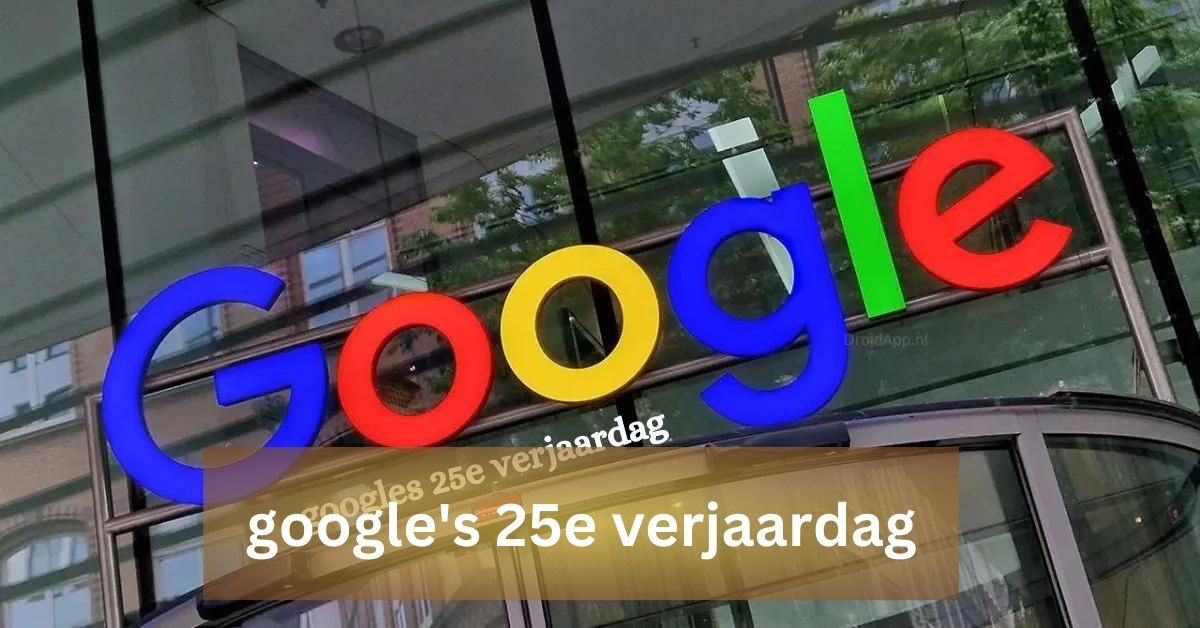Celebrating its 25th anniversary, Google stands as a monument to innovation.
Larry Page and Sergey Brin’s brainchild, born in 1998 at Stanford University, embarked on a mission to revolutionize how information is accessed and utilized globally.
Over the past quarter-century, Google has not only transformed digital landscapes but also redefined how societies interact, learn, and communicate.
The Birth of an Innovation
Google’s journey started humbly at Stanford University, initially conceived as a means to streamline internet searches.
Its founders envisioned a system that organized vast troves of online information, making it universally accessible and useful.
The pioneering PageRank algorithm, a key breakthrough, revolutionized web search, enabling more accurate and relevant results.
From these humble beginnings, Google rapidly ascended to become a global juggernaut. The company’s foundational principles of innovation, user-centric design, and scalability laid the groundwork for its meteoric rise.
Evolution of Google’s Services
Google’s expansion beyond its search engine roots has been staggering. The introduction of Gmail, a revolutionary email service, disrupted the traditional email landscape, offering substantial storage and efficient search capabilities.
Google Maps redefined navigation, while Android emerged as a dominant force in the mobile operating system realm. YouTube, acquired by Google in 2006, transformed online video sharing into a global phenomenon.
Additionally, the company’s diversification into hardware (Pixel smartphones, Nest smart home devices), software (Chrome browser, Google Workspace), cloud services (Google Cloud), and AI-driven ventures (Google Assistant, Google Brain) underscores its multifaceted innovation strategy.
The Impact on Society and Technology
Google’s impact reverberates across societal and technological domains. Its search engine advancements have empowered users worldwide, revolutionizing how individuals access, process, and utilize information.
Educational institutions, businesses, and individuals alike rely on Google’s suite of tools to enhance productivity and streamline workflows.
The company’s commitment to accessibility, highlighted by initiatives like Google.org’s philanthropic endeavors, aims to bridge digital divides.
Moreover, Google’s accessibility-focused features within its products cater to users with disabilities, contributing to a more inclusive digital environment.
Continuous Innovation and Technological Advancements
A hallmark of Google’s success is its relentless pursuit of innovation. Investments in AI, machine learning, quantum computing, and emerging technologies position the company at the forefront of technological evolution.
Projects like Waymo’s autonomous vehicles and Google X’s moonshot initiatives exemplify its audacious pursuit of groundbreaking innovations.
Moreover, Google’s commitment to sustainability, reflected in its investments in renewable energy and carbon neutrality goals, demonstrates a conscientious approach toward addressing global challenges.
Challenges and Controversies
Google, despite its unparalleled success, faces a spectrum of challenges. Intensifying antitrust scrutiny globally questions its market dominance and competitive practices.
Simultaneously, concerns over data privacy and user information security have prompted debates regarding Google’s ethical responsibilities and data usage transparency.
Balancing innovation with regulatory compliance and ethical considerations remains a persistent challenge.
Negotiating the delicate equilibrium between leveraging user data for personalized experiences and respecting user privacy rights presents an ongoing dilemma.
Google’s Cultural Impact
Google’s influence transcends technology, embedding itself deeply within global culture. The term “to Google” has become synonymous with online searching, reflecting its integration into daily language.
Google Doodles, celebrating events and notable figures, underscore its cultural canvas and diversity celebration.
YouTube’s dominance in entertainment and education has reshaped content consumption and creation. Similarly, Google Maps’ revolutionary impact on travel and exploration has become an integral part of daily life, transforming how individuals navigate and discover places.
The seamless integration of Google’s tools into education and business ecosystems has redefined collaboration and productivity, transforming workflows globally.
The Future of Google: Prospects and Challenges
As Google charts its future, opportunities in emerging technologies like AI and quantum computing abound.
However, navigating complex regulatory frameworks and addressing evolving user privacy concerns pose significant challenges.
Maintaining an ethical and transparent approach to innovation while complying with global regulations will be crucial.
Successfully addressing data privacy, cybersecurity, and adapting to geopolitical shifts will define Google’s trajectory.
Striking a balance between innovation, ethical considerations, and user trust will be pivotal for Google’s sustained success in an ever-evolving digital landscape.
Conclusion
Google’s 25th anniversary signifies not only a transformative journey but also underscores its enduring commitment to innovation and societal impact. As Google continues its evolution, it remains a symbol of technological advancement, promising a future characterized by limitless possibilities and sustained contributions to humanity’s digital landscape.
FAQs
1. What is Google’s 25th anniversary?
Google is celebrating its 25th anniversary, marking 25 years since its establishment in September 1998 at Stanford University.
2. How has Google evolved over 25 years?
Google transformed from a search engine to offering diverse products like Gmail, Maps, Android, YouTube, becoming essential in billions of lives globally.
3. What impact has Google had on society and technology?
Google’s innovations reshaped information access, education, and communication, influencing modern society’s dynamics.
4. What drives Google’s success?
Google’s success stems from a commitment to innovation, evident in investments in AI, quantum computing, and emerging technologies.
5. What challenges has Google faced?
Google navigates challenges including antitrust scrutiny, data privacy, and ethical debates due to its market dominance.
6. How has Google impacted culture beyond technology?
Google’s products shaped everyday language (“to Google”), influenced entertainment (YouTube), travel (Maps), and education globally.
7. What are Google’s future prospects and challenges?
Google’s future involves opportunities in AI but faces complexities in complying with regulations and addressing user privacy concerns.
8. What ethical considerations does Google face?
Google grapples with ethical dilemmas concerning AI bias, user privacy, and responsible tech deployment.
9. How will Google adapt to future changes?
Google aims to adapt by innovating ethically, complying with regulations, addressing user privacy, and maintaining trust amidst evolving landscapes.



